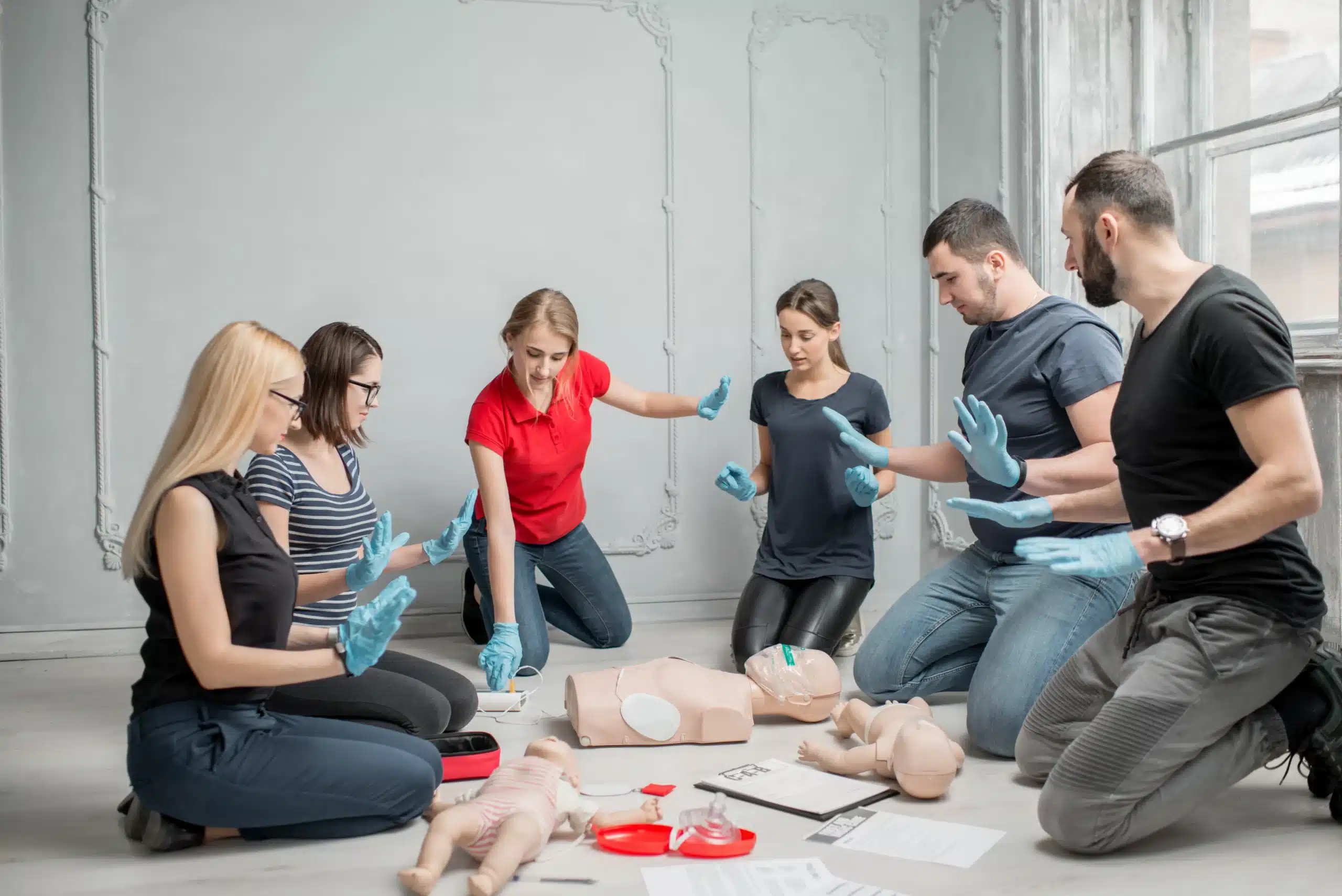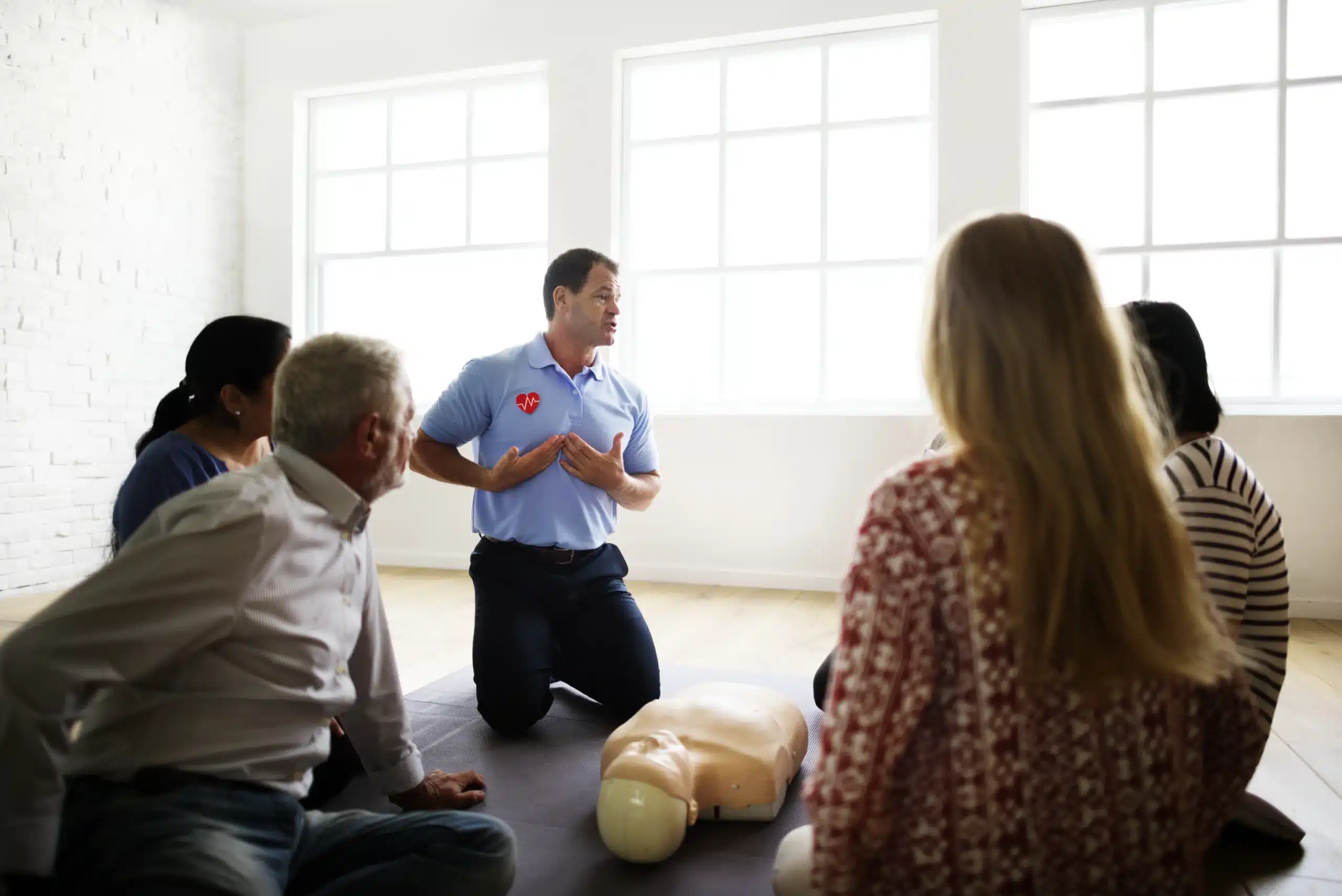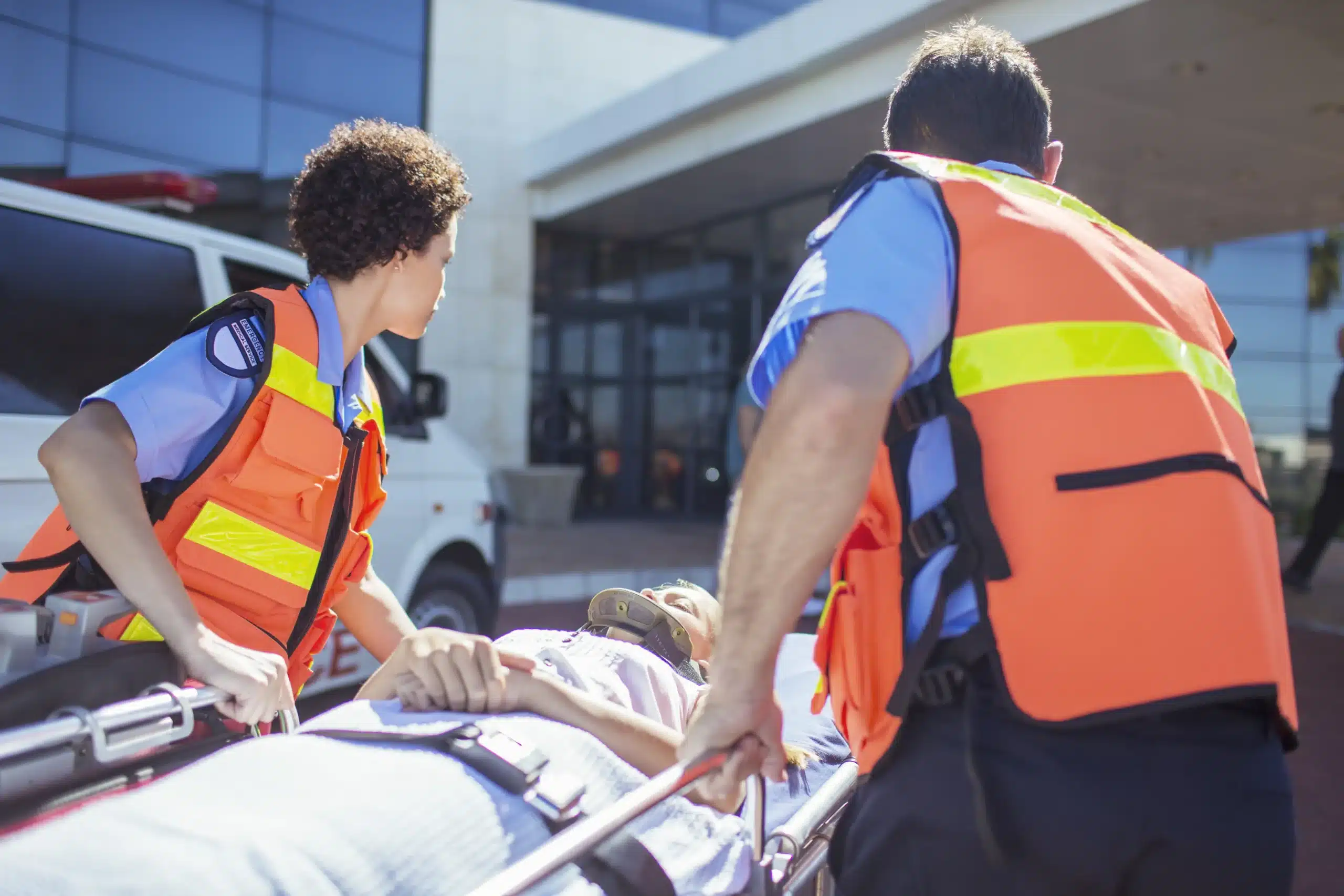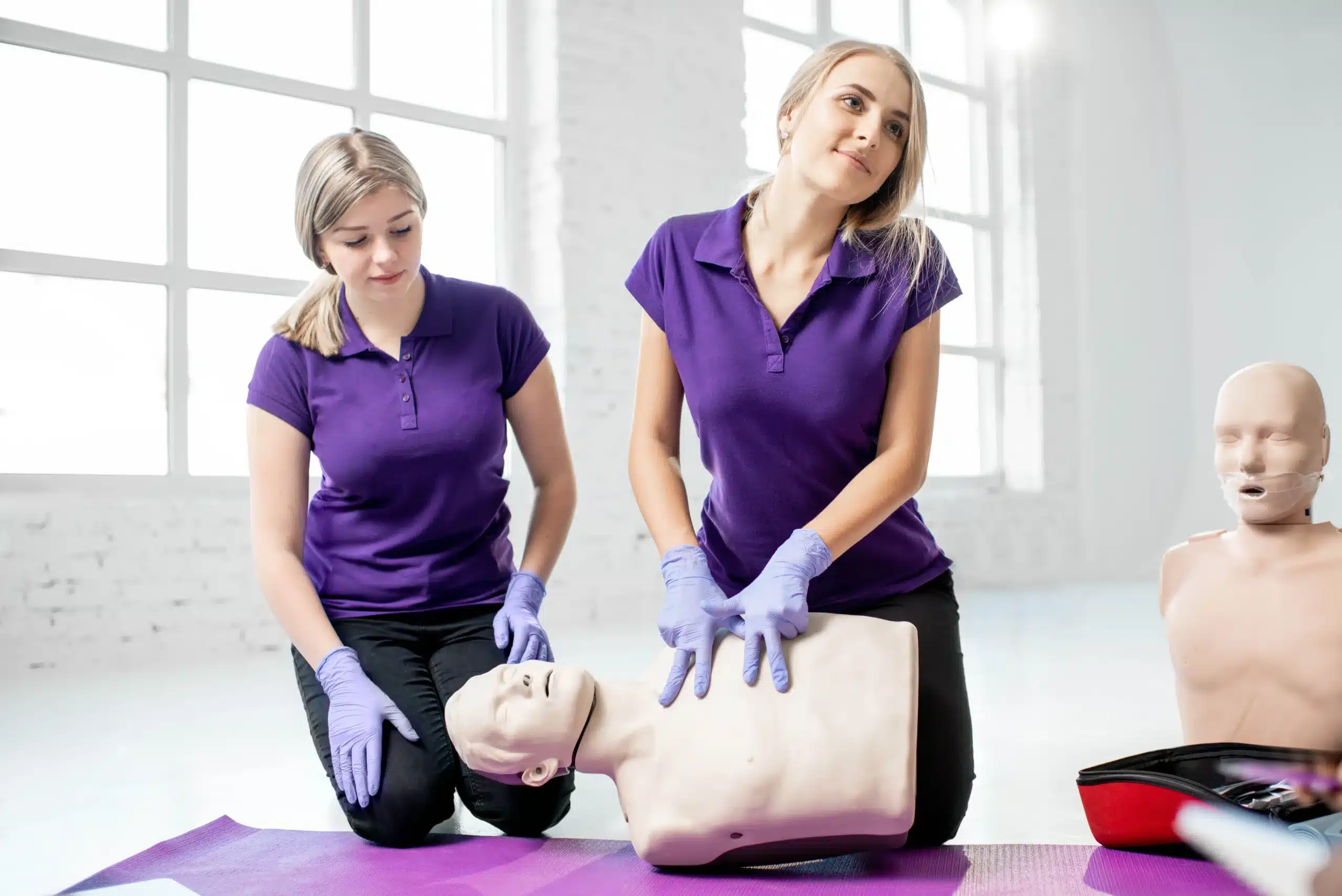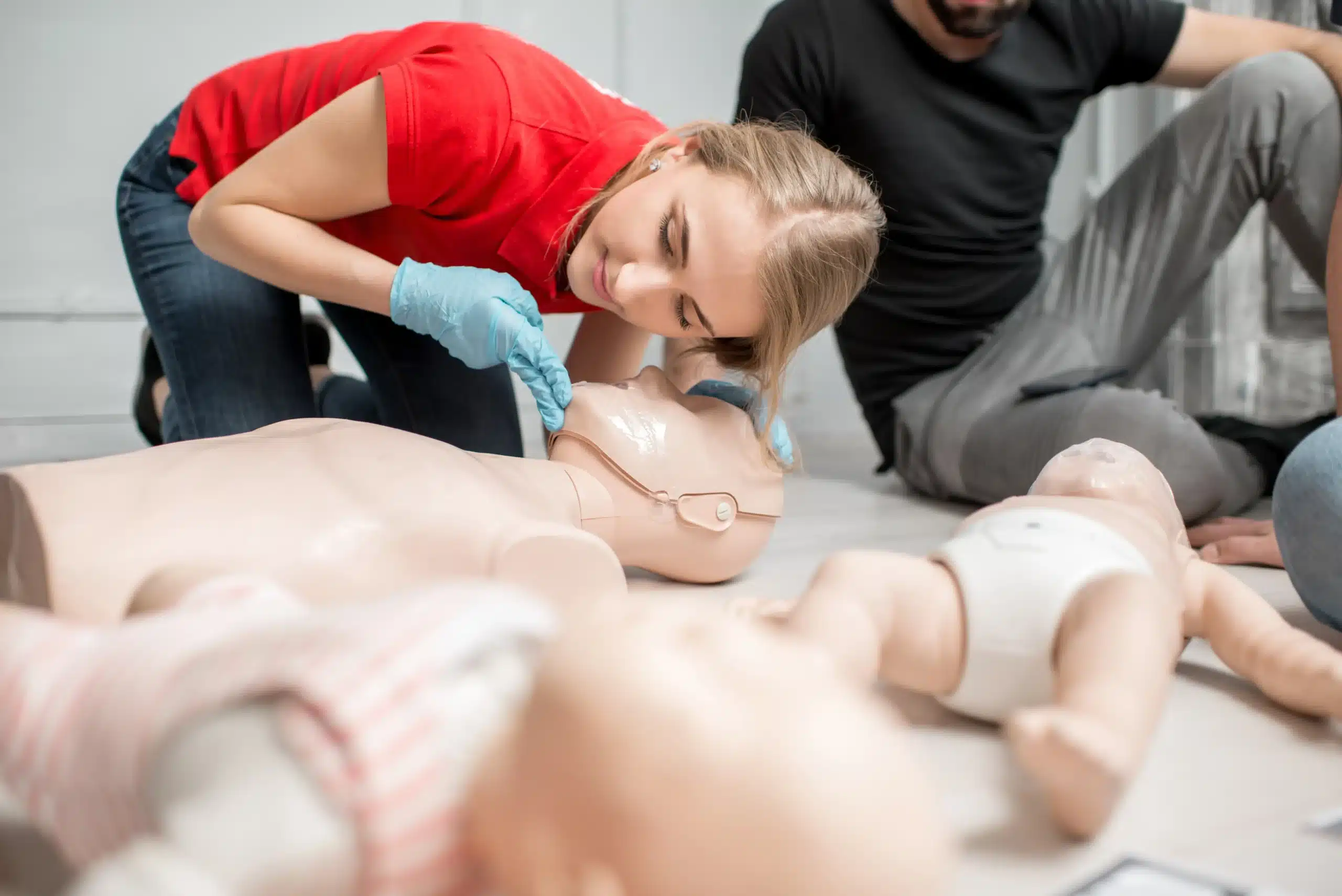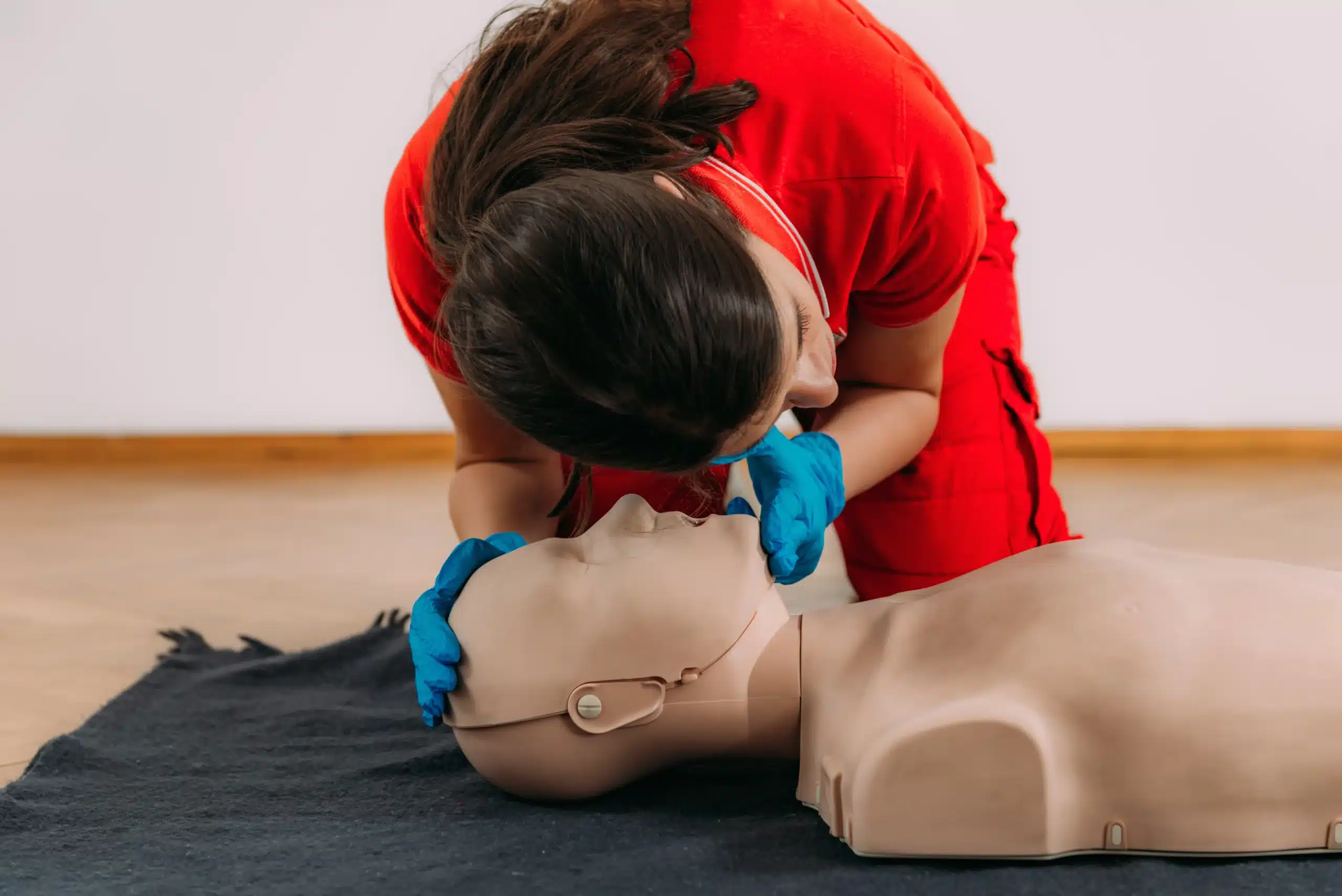Working in healthcare in Tracy, you understand the unique challenges of pediatric emergencies. Children aren’t just small adults; they require specialized care and interventions. Pediatric Advanced Life Support (PALS) certification provides the targeted training you need to confidently respond to these critical situations. This article serves as your comprehensive guide to pediatric advanced life support in Tracy. We’ll explore the importance of PALS, the various training options available locally, and how this certification can enhance your career and improve patient outcomes. We’ll also delve into the course structure, costs, and valuable resources to support your PALS journey.
Key Takeaways
- PALS certification equips you with life-saving skills: It’s crucial for any Tracy healthcare provider who might encounter pediatric emergencies. This specialized training empowers you to confidently manage critical situations and improve patient outcomes.
- Find a PALS course that fits your needs: Consider factors like in-person vs. blended learning, cost, and provider reputation when making your decision. Safety Training Seminars offers convenient and affordable options in Tracy.
- Stay current to provide the best care: PALS recertification is required every two years. Regularly review the materials and seek continuing education opportunities to maintain your skills and knowledge.
What is Pediatric Advanced Life Support (PALS)?
Definition and Purpose
Pediatric Advanced Life Support (PALS) is a specialized training program that equips healthcare providers with the skills to respond to medical emergencies involving infants and children. This course covers a wide range of life-saving interventions, from basic life support to advanced techniques for managing respiratory and cardiac arrest. The ultimate goal of PALS is to improve the outcomes of pediatric patients facing critical health situations. Learn more about PALS.
Why PALS is Important for Tracy Healthcare Professionals
For healthcare professionals in Tracy, PALS certification is invaluable. It provides the knowledge and skills necessary to confidently manage pediatric emergencies, leading to better patient care and potentially saving lives. Whether you’re a nurse, doctor, or emergency medical technician, PALS training enhances your ability to deliver swift, effective care when it matters most. It’s a crucial step in ensuring the health and safety of young patients in our community. Explore PALS Certification.
Pediatric Emergencies Addressed in PALS Training
PALS training addresses a broad spectrum of pediatric emergencies. Participants learn to recognize the early warning signs of respiratory distress, cardiac arrest, shock, and other critical conditions. The course covers essential procedures such as airway management, intravenous access, and medication administration specifically tailored to the needs of infants and children. This comprehensive approach prepares healthcare providers to handle diverse emergency situations effectively and provide high-quality care to their young patients. For more details, review this overview of PALS.
Find PALS Certification in Tracy
If you’re a healthcare provider in Tracy, getting your Pediatric Advanced Life Support (PALS) certification is easier than you think. Several options cater to different learning styles and schedules. Let’s explore the various paths available for PALS certification in Tracy.
In-Person Courses
Traditional in-person PALS courses offer a structured learning environment with direct interaction with instructors and other healthcare professionals. This format allows for immediate feedback and hands-on practice, which can be beneficial for those who learn best in a classroom setting. Safety Training Seminars offers in-person PALS training right here in Tracy. For those in nearby cities, Bay Area CPR also provides courses in Tracy, conveniently located near Livermore and Modesto.
Online and Blended Learning
For those seeking more flexibility, online and blended learning options are available. The PALS HeartCode program combines online learning with hands-on skills practice. This blended format allows you to learn the material at your own pace, then attend an in-person skills session to demonstrate your proficiency. Tracy CPR Classes offers this blended learning option, providing a balance between flexibility and practical application.
Comparing Local Providers
Choosing the right provider is an important step in your PALS journey. Here’s a quick comparison of a few local options:
Safety Training Seminars
Safety Training Seminars is a woman-owned American Heart Association Training Center. They focus on providing high-quality courses and convenient scheduling. They are known for their commitment to excellent customer service and competitive pricing. You can learn more about their offerings on their website.
Tracy CPR Classes
Tracy CPR Classes offers the PALS HeartCode blended learning program. Their total cost for PALS HeartCode training is $290, which includes the online portion, the skills session, and your certification card. More details about their program can be found on their blog.
Bay Area CPR
Bay Area CPR offers American Heart Association-certified PALS courses in Tracy. They serve the surrounding areas, including Livermore and Modesto, making their courses accessible to a wider range of healthcare providers. You can find their Tracy class information on their website.
Explore PALS Course Structure and Content
PALS courses blend online learning with hands-on skills sessions. This approach lets you learn the material at your own pace and then practice in a real-world setting. Let’s take a closer look:
Online Learning
The online portion of the PALS course provides foundational knowledge. You’ll cover key concepts like recognizing and responding to pediatric emergencies, including respiratory distress, shock, and cardiac arrest. This flexible online format allows you to study when and where it’s most convenient. PALS HeartCode offers this blended learning style. It allows students to complete the coursework online before scheduling an in-person skills session.
Hands-On Skills Practice and Simulations
After completing the online modules, you’ll participate in hands-on skills practice and simulations. These sessions are crucial for developing muscle memory and confidence in performing life-saving techniques. Interactive scenarios challenge you to apply your knowledge, with instructors providing immediate feedback. This helps you refine your skills and prepare for real-world emergencies.
Team Dynamics and Communication Training
PALS training also emphasizes teamwork and communication during pediatric emergencies. You’ll learn how to effectively communicate with other healthcare providers, coordinate care, and make quick decisions under pressure. This focus on team dynamics ensures you’re prepared to work collaboratively in stressful situations. Clear communication is essential for positive patient outcomes.
Duration and Time Commitment
The total time commitment for PALS certification varies depending on the course and provider. Factors like the format (blended or traditional) and individual learning pace can influence the duration. For example, the PALS HeartCode training includes both online modules and a separate hands-on skills session. Check with your chosen provider for details on course length and scheduling options. Understanding the time commitment upfront helps you plan accordingly.
PALS Certification Costs & Value in Tracy
Understanding the cost and value of Pediatric Advanced Life Support (PALS) certification is crucial for healthcare professionals in Tracy. Let’s break down the typical expenses and explore how Safety Training Seminars offers competitive pricing.
Average Course Pricing
PALS certification courses in Tracy typically cost around $290. This usually covers online learning materials, the hands-on skills session, and your official certification card. This comprehensive approach ensures you’re well-prepared for pediatric emergencies. For more information on PALS courses, see this PALS HeartCode Tracy guide.
Safety Training Seminars’ Competitive Rates
Safety Training Seminars offers high-quality PALS training at competitive rates. As a recognized American Heart Association Training Center, they provide various courses, including BLS, ACLS, and PALS. This makes them a valuable resource for healthcare providers in Tracy wanting to develop their pediatric advanced life support skills. Their commitment to low prices makes training accessible to everyone.
Discounts and Group Rates
If you’re coordinating training for a group, many training centers in Tracy, including Safety Training Seminars, offer discounts and group rates. Contact Safety Training Seminars to learn about their options. Group discounts can significantly lower the per-person cost, making it easier for healthcare facilities to ensure their teams are PALS certified and prepared to provide excellent pediatric care.
Benefits of PALS Certification for Tracy Healthcare Providers
As a healthcare provider in Tracy, your skills and expertise directly impact the lives of young patients. Pediatric Advanced Life Support (PALS) certification equips you with the tools and knowledge to deliver exceptional care during pediatric emergencies. Let’s explore how PALS certification benefits your career and the community you serve.
Enhance Patient Care Skills
PALS certification instills confidence and competence in managing pediatric emergencies. Through PALS training, you’ll master evidence-based techniques and interventions, ensuring you’re prepared to provide the highest quality care to infants and children. This specialized training covers a wide range of critical situations, from respiratory distress and cardiac arrest to shock and post-resuscitation care. These skills translate directly into improved patient outcomes and a higher standard of care in Tracy’s healthcare settings. For anyone who may encounter a pediatric emergency, PALS training can help improve patient outcomes, ensuring that healthcare providers are prepared with the latest, evidence-based techniques.
Advance Your Career
PALS certification is a valuable asset for career advancement. It demonstrates your commitment to continuing education and professional development, setting you apart from your peers. Many healthcare facilities require or prefer PALS certification for specific roles, opening doors to new opportunities and career paths. A PALS certification can be the key to unlocking leadership positions, specialized roles, and increased earning potential. By enrolling in a PALS certification course, healthcare professionals can gain the knowledge and skills needed to effectively manage pediatric emergencies and improve patient outcomes.
Meet Professional Requirements
PALS certification is often a mandatory requirement for healthcare professionals working in pediatric critical care, emergency departments, and other specialized areas. Maintaining your PALS certification ensures you comply with professional standards and regulations, allowing you to practice legally and ethically. It signifies your dedication to providing safe and effective care, meeting the expectations of employers and regulatory bodies. The PALS certification is a critical component of pediatric emergency care, providing healthcare professionals with the knowledge and skills needed to respond confidently to pediatric emergencies.
Improve Confidence in Pediatric Emergencies
Facing a pediatric emergency can be stressful, but PALS certification empowers you to respond decisively and effectively. The comprehensive training and hands-on practice build your confidence, reducing anxiety and improving your ability to think clearly under pressure. This increased confidence translates into better decision-making, improved communication with team members, and ultimately, better outcomes for your young patients. PALS training helps healthcare professionals improve their skills to handle medical emergencies effectively and provide high-quality care to pediatric patients.
Prepare for Your PALS Course
Getting ready for your PALS course involves understanding the prerequisites, gathering your study materials, and employing effective study strategies. A little preparation goes a long way in ensuring you’re ready to absorb this vital information.
Enrollment Prerequisites
PALS training is designed for healthcare providers who may need to respond to pediatric emergencies. This typically includes doctors, nurses, paramedics, respiratory therapists, and other professionals in clinical settings. While there aren’t strict prerequisites like previous certifications, a background in healthcare is essential. PALS builds upon existing medical knowledge, giving you specialized pediatric life-saving skills. If you’re unsure if your background is appropriate, reach out to a local PALS provider, like Safety Training Seminars, to discuss your qualifications.
Study Materials and Resources
The American Heart Association (AHA) provides comprehensive resources for PALS certification. The course often involves a blended learning approach, combining online learning with hands-on skills sessions. The online portion, known as HeartCode® PALS, lets you work through interactive modules at your own pace. You’ll also have access to the PALS Provider Manual, a key resource for understanding the algorithms and protocols. Many providers, including Safety Training Seminars, offer these materials as part of your course registration.
Tips for Successful Completion
PALS isn’t just about memorization; it’s about applying knowledge in critical situations. To succeed, actively engage with the course content. The HeartCode PALS online modules offer immediate feedback after each simulation, helping you pinpoint areas for improvement. Take advantage of this feature to reinforce your learning. During the hands-on skills session, ask your instructor questions and participate in the scenarios. These interactive scenarios challenge you to apply your knowledge and make quick decisions under pressure, mirroring real-world situations. Review the materials regularly, even after completing the course, to maintain your skills and stay current with any guideline changes.
Maintain Your PALS Certification
Once you’ve earned your PALS certification, staying current is key to providing the best possible care. This section covers how to maintain your PALS skills and knowledge so you can remain confident in your abilities.
Renewal Requirements and Frequency
PALS certification, like many healthcare certifications, isn’t a one-and-done deal. It’s valid for two years. After this period, you’ll need to recertify to keep your skills sharp and your certification current. This ensures you’re always up-to-date on the latest pediatric life support guidelines. You’ll receive a PALS certification card from the American Heart Association when you complete the course, which will show your certification’s expiration date.
Continuing Education
Continuing education is crucial for any healthcare provider, especially those dealing with pediatric emergencies. PALS certification equips you with the foundational knowledge and skills to respond effectively in these critical situations. Regularly reviewing PALS materials and seeking additional training opportunities will help you maintain those skills and stay informed about advancements in pediatric care. This ongoing learning helps you confidently and competently handle pediatric emergencies. The American Heart Association designates some PALS courses for AMA PRA Category 1 Credits™.pdf), allowing you to further your professional development.
Stay Updated with Guidelines
Staying abreast of the latest PALS guidelines is essential for providing the highest quality of care. These guidelines are regularly updated to reflect the most current research and best practices in pediatric emergency care. Key areas of focus often include airway and breathing management, cardiac arrest management, and post-resuscitation care. Reviewing these updates ensures your practices align with the latest recommendations and provides the best outcomes for your young patients.
Overcome PALS Training Challenges
Let’s be honest, PALS training can feel intense. It covers a lot of critical information and requires a serious time commitment. But don’t worry, understanding the challenges upfront can help you prepare and succeed. We’ll break down common hurdles and offer solutions to make your PALS training smoother.
Time Constraints and Extended Training
Juggling work, family, and other commitments makes finding time for a two-day PALS course tricky. Many providers now offer more flexible scheduling options. While the traditional two-day course is still common, some offer a blended learning approach combining online modules with shorter in-person skills sessions, allowing you to learn at your own pace and fit the training around your schedule. Studies show that this blended learning can be just as effective as the traditional format, sometimes even leading to better knowledge retention. Check with your chosen provider, like Safety Training Seminars, to see what options they have available. A longer course might seem daunting, but it often means less cramming and more time to absorb the material. Research shows that extended training leads to greater improvement in test scores and fewer participants feeling rushed.
Complex Material and Interactive Teaching
PALS covers complex algorithms and procedures, which can be overwhelming. Look for courses that use interactive teaching methods. Hands-on activities, simulations, and case studies can make learning more engaging and help you understand how to apply the information in real-life scenarios. Interactive scenarios challenge you to think critically and make decisions under pressure, just like you would in a real emergency. This type of active learning is much more effective than passively listening to lectures.
Limited Hands-On Practice and Increased Simulations
Mastering PALS skills requires practice. While traditional courses often have limited time for hands-on training, many providers now incorporate more simulations and skills practice. PALS HeartCode training blends online learning with hands-on skill sessions, giving you more opportunities to practice and refine your techniques. This blended approach can lead to better retention of critical skills and increased confidence when facing pediatric emergencies. Ask potential providers about the ratio of instructors to students and the amount of hands-on practice time offered in their courses. More practice translates to better preparedness.
Choose the Right PALS Provider in Tracy
Finding the right Pediatric Advanced Life Support (PALS) provider is crucial for your training and career. With several options in Tracy, consider these key factors to make an informed decision.
Factors to Consider
Think about your learning style and schedule. Do you prefer traditional classrooms or a more flexible approach? PALS HeartCode blends online learning with hands-on skills sessions. This format lets you learn at your own pace online and then practice your skills in person. This offers a good balance for those wanting flexibility and practical application. If you value immediate feedback, programs with simulations offer opportunities to practice and refine your skills with direct instructor guidance. Consider the location and schedule to ensure they fit your availability. Safety Training Seminars offers convenient scheduling options to accommodate busy professionals.
Accreditation and Recognition
Ensure your chosen provider offers courses accredited by a recognized organization like the American Heart Association (AHA). AHA PALS Provider courses are designed to improve outcomes for pediatric patients by preparing healthcare providers to recognize and intervene in respiratory emergencies, shock, and cardiopulmonary arrest. The AHA emphasizes high-performance team dynamics and high-quality individual skills. Choosing an accredited provider ensures you receive high-quality training that meets industry standards. Safety Training Seminars offers AHA-accredited PALS courses, ensuring your certification is widely recognized.
Reviews and Testimonials
Before committing to a PALS provider, research their reputation. Look for reviews and testimonials. Positive feedback can give you confidence in the quality of instruction and the overall learning experience. For example, past participants in Tracy CPR Classes’ PALS HeartCode program have praised the immediate feedback after each simulation. This reinforces learning and identifies areas for improvement. Research also suggests that longer, more comprehensive PALS courses can lead to greater improvement in scores for certain participants. Consider these insights when evaluating different providers. Safety Training Seminars prioritizes student success and offers excellent customer service.
Access Post-Training Support and Resources
After completing your Pediatric Advanced Life Support (PALS) training, continued access to resources and support is essential for maintaining your skills and staying up-to-date with the latest guidelines. Here’s what you should look for in a quality PALS provider:
Online Materials
Reliable PALS providers offer access to online materials. These resources reinforce what you learned during the course and serve as a handy reference guide. These materials might include refresher courses, interactive exercises, and the latest updates to PALS protocols. Digital access ensures you can review the information whenever and wherever you need it.
Certification and Documentation
Upon successful completion of your PALS course, you’ll receive a PALS Course Completion Card. This card is proof of your training and is often required for employment in healthcare settings. Make sure your provider offers certification recognized across the healthcare industry, like the American Heart Association’s PALS Course Completion Card, ensuring your certification is valid and respected wherever you practice.
Ongoing Hands-On Skills Sessions
While online resources are valuable, nothing replaces hands-on practice. Look for providers who offer refresher courses or ongoing skills sessions. These sessions allow you to refine your techniques and maintain muscle memory for critical procedures. PALS HeartCode training often blends online learning with in-person skills sessions for a comprehensive approach.
Continuing Education Opportunities
Pediatric Advanced Life Support is a dynamic field, with guidelines and best practices constantly evolving. Continuing education is crucial for staying current and providing the best possible care. Many PALS providers offer advanced eLearning modules or other continuing education opportunities. The American Heart Association, for example, offers PALS Plus Advanced eLearning Modules.pdf) to supplement your initial training. These resources help you expand your knowledge and maintain your competence in pediatric advanced life support.
Related Articles
- PALS HeartCode Tracy: Your Certification Guide – Stockton CPR Classes
- Pediatric CPR & First Aid Training in Stockton – Stockton CPR Classes
- Pediatric CPR & First-Aid Classes in Tracy – Stockton CPR Classes
- ACLS Certification in Tracy: Your Comprehensive Guide – Stockton CPR Classes
- AHA PALS Classes in Stockton, CA – Stockton CPR Classes
Frequently Asked Questions
What exactly does PALS training cover?
PALS training provides healthcare professionals with the knowledge and skills to manage life-threatening emergencies in infants and children. It covers a range of topics, including recognizing and responding to respiratory distress, shock, and cardiac arrest. The course also emphasizes effective teamwork and communication during emergencies.
How is PALS different from basic CPR and first aid?
While basic CPR and first aid provide a foundation for responding to emergencies, PALS goes much deeper. It focuses specifically on the physiological differences between children and adults, equipping healthcare providers with specialized techniques tailored to young patients. PALS also covers advanced interventions like airway management and medication administration in pediatric emergencies.
How long does PALS certification last, and how do I renew it?
PALS certification is typically valid for two years. To renew your certification, you’ll need to complete a recertification course before your current certification expires. This ensures your skills and knowledge remain current with the latest guidelines.
What career opportunities are available with PALS certification?
PALS certification is highly valued in many healthcare settings. It’s often a requirement for positions in pediatric critical care units, emergency departments, and other areas where providers regularly care for infants and children. Having a current PALS certification can open doors to more specialized roles and career advancement.
How can I fit PALS training into my busy schedule?
Many PALS providers understand the time constraints faced by healthcare professionals. They offer flexible options like blended learning, which combines online modules with shorter, in-person skills sessions. This allows you to complete the coursework at your own pace and schedule the hands-on portion when it’s most convenient.
